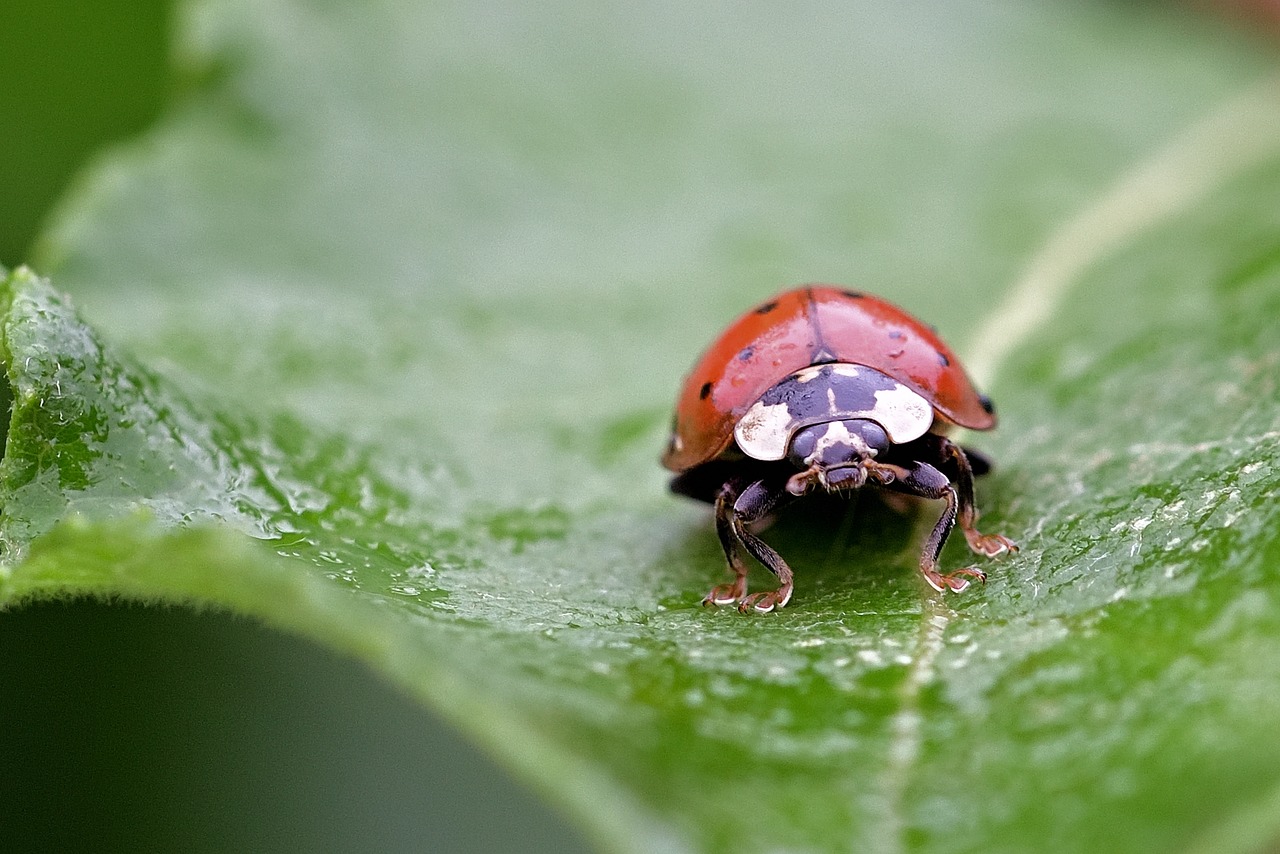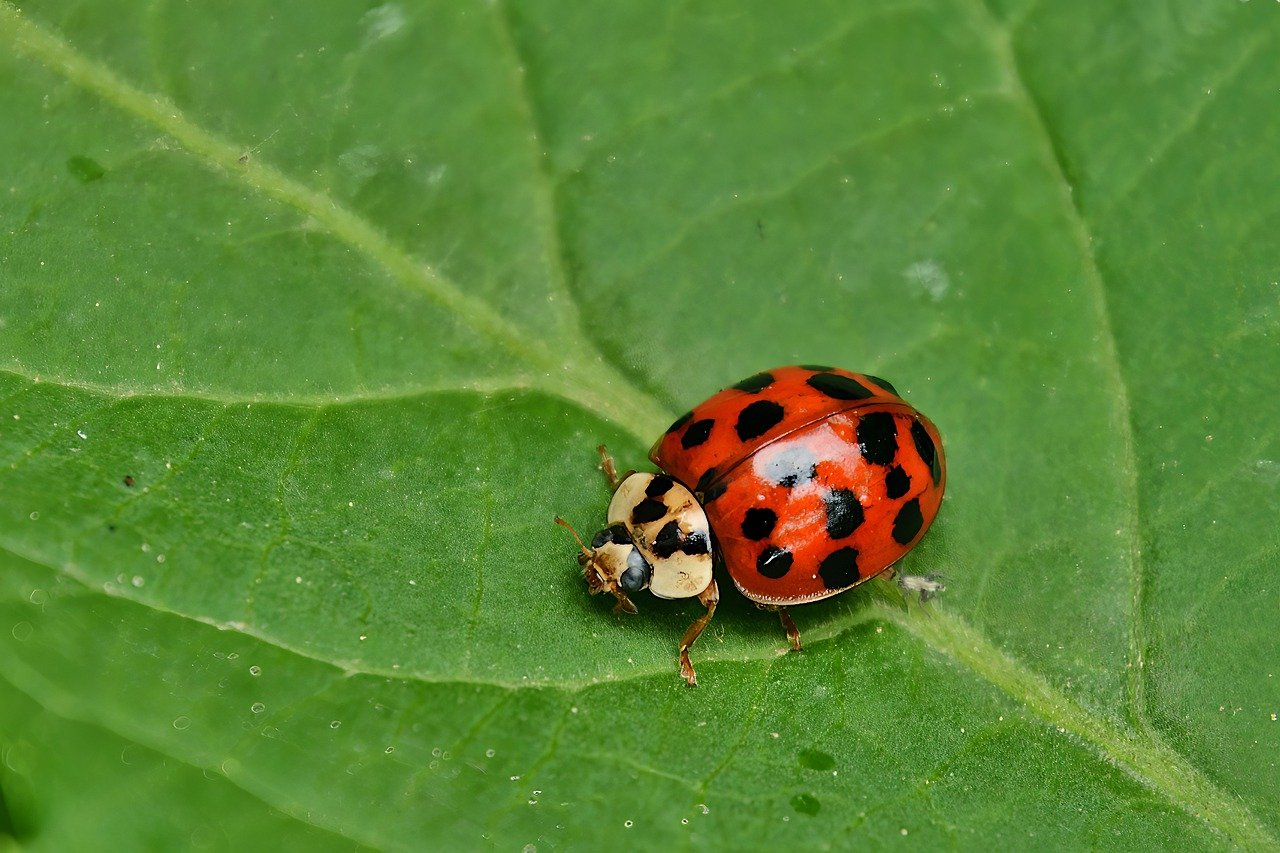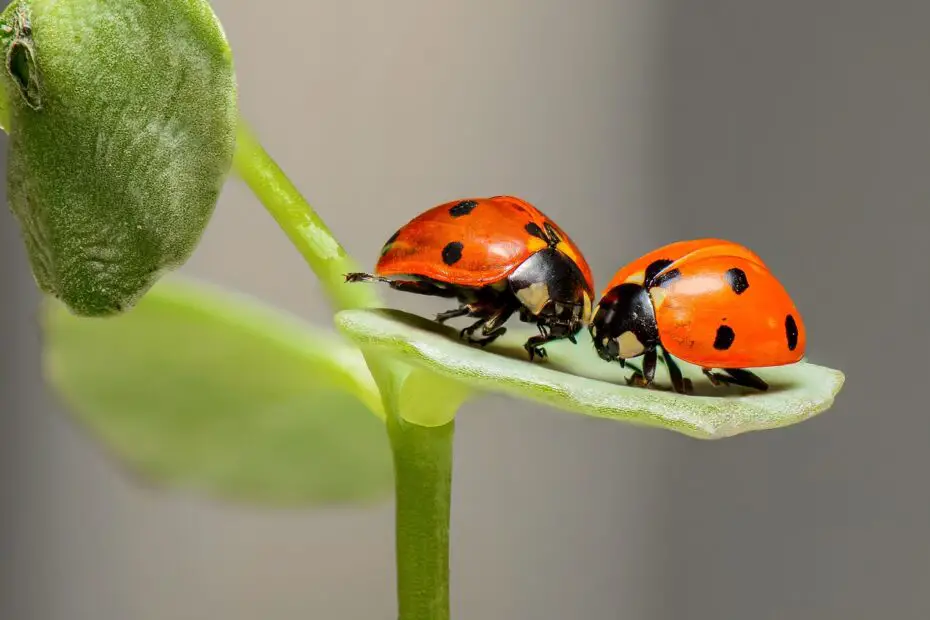Ladybugs, with their vibrant colors and delicate appearance, have long been associated with luck and charm. These small beetles, also known as ladybirds or lady beetles, are often welcomed in gardens for their voracious appetite for plant pests like aphids. However, a common misconception persists – do ladybugs bite? In this article, we will explore the truth behind ladybug bites and shed light on the fascinating world of these tiny garden allies.
You may also want to read about ladybug poison.
Understanding Ladybugs
Ladybugs are small insects belonging to the Coccinellidae family. They are characterized by their rounded shape, bright colors, and distinct black spots on their wing covers. Ladybugs come in various colors, including red, orange, yellow, and even black, with different numbers and patterns of spots. These vibrant hues serve as a warning to potential predators, signaling their toxicity and unpalatability.
In gardens, ladybugs play a vital role in maintaining a balanced ecosystem. Their primary food source consists of soft-bodied insects, particularly aphids, which are notorious plant pests. Ladybugs can consume a significant number of aphids daily, making them a natural and effective form of pest control.
Feeding Habits of Ladybugs
Ladybugs are voracious predators, feasting on aphids, scale insects, mites, and other small arthropods. They target soft-bodied insects that tend to infest plants, protecting the vegetation from further damage. This makes ladybugs highly beneficial to gardeners, as they reduce the need for chemical pesticides.
Contrary to popular belief, ladybugs do not feed on human blood or exhibit parasitic behavior. Their diet consists solely of insects and other small invertebrates. Therefore, the notion of ladybugs biting humans is largely a misconception.

Ladybugs and Humans
Ladybugs are generally harmless to humans. Their tiny mandibles are not designed for biting or piercing human skin. Ladybugs do not have the ability to transmit diseases or cause significant harm. However, in rare instances, ladybugs might bite when they feel threatened or cornered.
It’s important to note that ladybug bites are extremely rare and occur as a defensive mechanism rather than an aggressive act. These bites are typically gentle pinches that may cause slight discomfort or leave small red marks on the skin. In the majority of cases, ladybug bites are harmless and pose no significant health risks.
Identifying Ladybug Bites
Ladybug bites are often mistaken for other insect bites due to their small size and mild reaction. They typically appear as tiny red marks on the skin, similar to mosquito or flea bites. However, it’s crucial to differentiate them from other potential bites, especially if there is a need for proper identification and medical attention.
If you suspect a ladybug bite, closely examine the bite mark for any signs of the characteristic black spots or remnants of the ladybug. This can help distinguish ladybug bites from those of other insects. In general, it is advisable to consult a medical professional for any concerns or if symptoms persist.
Preventing Ladybug Bites
While ladybug bites are uncommon and usually harmless, it’s understandable that some individuals may wish to minimize any potential interactions. To prevent ladybug bites, it is recommended to handle ladybugs gently and avoid direct contact with them. If you have a garden and want to work with ladybugs for natural pest control, consider using gloves or a barrier to reduce direct contact.
When gardening or spending time outdoors, it’s important to remember that ladybugs are valuable allies in maintaining a healthy ecosystem. Rather than fearing their bites, we should appreciate their presence and the benefits they bring to our gardens.
Ladybugs as Harmless Garden Allies
Ladybugs are often regarded as beloved symbols of good luck and prosperity in many cultures. Their charm and gentle nature make them a welcome addition to any garden. By consuming vast quantities of aphids and other plant pests, ladybugs promote healthy plant growth and protect vegetation from damage.
By embracing ladybugs as beneficial insects, gardeners can reduce the need for chemical pesticides and embrace environmentally friendly methods of pest control. Creating an inviting habitat for ladybugs through diverse plantings, providing water sources, and minimizing pesticide use ensures their continued presence and assistance in maintaining a thriving garden ecosystem.

Other Interesting Facts about Ladybugs
Ladybugs possess intriguing characteristics beyond their pest-control abilities. When threatened, they can release a yellowish, foul-smelling liquid from their leg joints as a defense mechanism. This distasteful secretion deters predators and serves as a powerful deterrent. Ladybugs also hold cultural significance in various societies, symbolizing good fortune, protection, and even love in different traditions around the world.
Do Ladybugs Bite? In conclusion, ladybugs rarely bite humans, and their bites, if they occur, are generally harmless. These charming beetles are vital contributors to garden ecosystems, aiding in natural pest control and promoting plant health. Rather than fearing ladybug bites, we should celebrate their presence and the harmony they bring to our gardens.
FAQs (Frequently Asked Questions)
1. Can ladybugs cause any harm to plants? Ladybugs are primarily beneficial to plants as they prey on plant pests like aphids. They do not harm healthy plants.
2. Are all ladybugs toxic? While most ladybugs possess some level of toxicity, not all are toxic to the same degree. Brightly colored ladybugs with distinct spots generally indicate higher levels of toxicity.
3. Do ladybugs bite in self-defense only? Yes, ladybugs may bite humans as a last resort when they feel threatened or trapped. It is their defensive mechanism rather than an aggressive behavior.
4. Can ladybug bites cause allergic reactions? Ladybug bites are generally harmless and do not cause allergic reactions. However, individual reactions may vary, so it’s advisable to seek medical attention if severe symptoms occur.
5. How can I attract ladybugs to my garden? You can attract ladybugs by planting pollen and nectar-rich flowers, providing water sources, avoiding pesticide use, and creating sheltered spaces like small rock piles or wooden structures.
